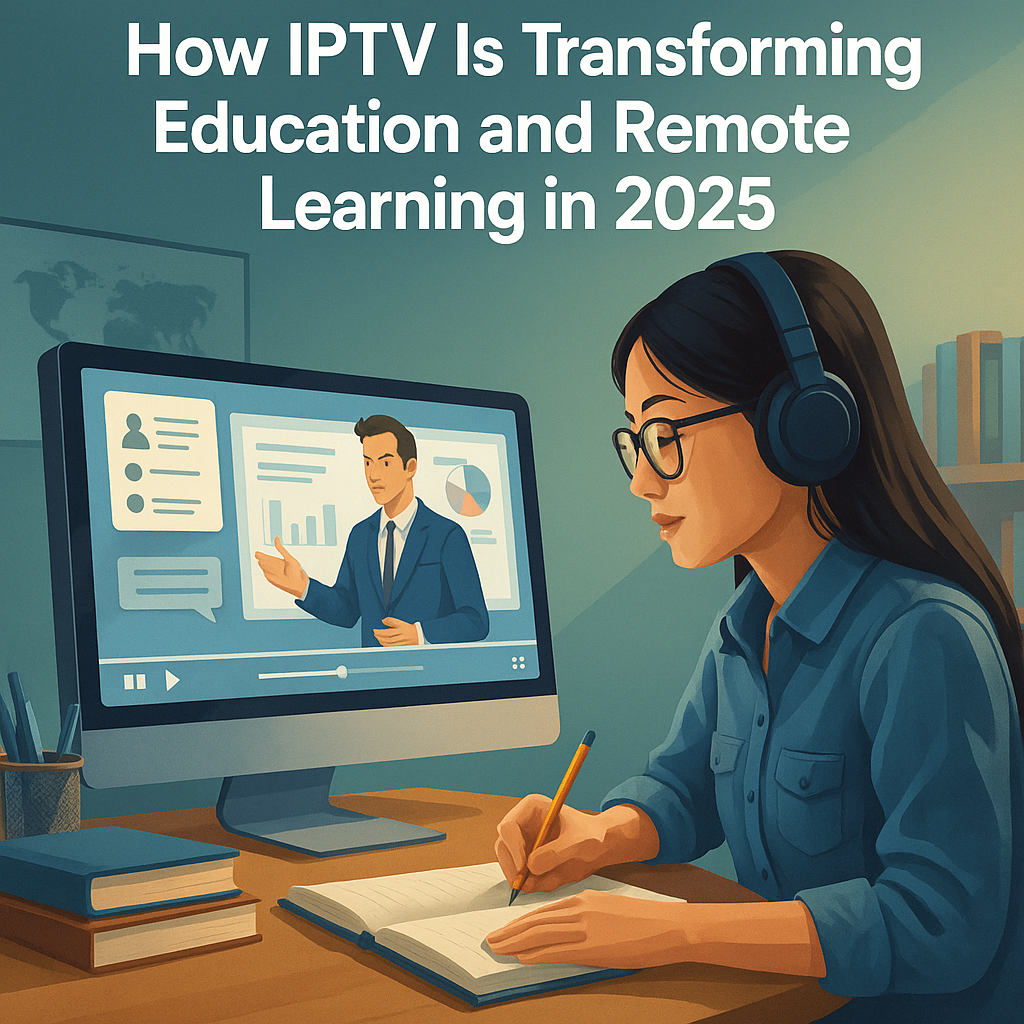
In 2025, the landscape of education has experienced a profound shift. Traditional classrooms are being replaced—or at least enhanced—by digital environments. One of the key technologies powering this change is IPTV (Internet Protocol Television). Originally built for entertainment, IPTV is now revolutionizing remote learning, educational accessibility, and interactive instruction.
1. What is IPTV and Why It Matters in Education?
IPTV delivers television content over the internet, rather than traditional terrestrial, satellite, or cable formats. Its real-time streaming, on-demand features, and multi-device compatibility make it a perfect fit for modern education, where flexibility and accessibility are key.
In 2025, over 70% of educational institutions in developed countries are integrating IPTV platforms into their curriculum delivery systems.
2. Interactive Learning Like Never Before
Modern IPTV services support features like:
- Live Q&A during lectures
- Rewind and Replay
- On-screen quizzes and annotations
- Multi-language subtitles for inclusivity
This allows students to learn at their own pace, revisit complex concepts, and stay engaged.
3. Personalized Learning Through AI & IPTV Integration
Thanks to AI-powered IPTV platforms, students now receive personalized content recommendations:
- Tailored courses based on performance
- Auto-generated study playlists
- Adaptive difficulty levels
This creates a highly adaptive remote classroom where each learner progresses according to their strengths.
4. Global Reach: Breaking Barriers
IPTV enables cross-border education. Universities and institutions in the US, UK, India, and China now offer IPTV-based live classes to remote students across the globe.
Whether you’re in a rural town in Morocco or a major city in Europe, you can now access top-tier lectures from Ivy League institutions through IPTV-powered learning portals.
5. IPTV for Teachers and Institutions
Teachers benefit too:
- Real-time class analytics
- Easy content broadcasting
- Pre-recorded video scheduling
- Monetization options for private educators
This creates a sustainable and scalable model for knowledge delivery.
6. Cost-Effective Learning for All
IPTV-based education reduces costs:
- No physical infrastructure
- Minimal software needs (browser or mobile app)
- Affordable for institutions and learners
In developing nations, this affordability means massive educational upliftment.
Conclusion
IPTV has outgrown its entertainment roots. In 2025, it stands as a cornerstone of the new digital education revolution. It empowers learners, supports educators, and removes borders—geographical and socioeconomic. Whether you’re a university, a corporate trainer, or a curious student, IPTV is reshaping how knowledge flows.
